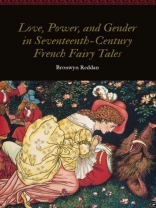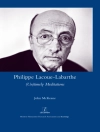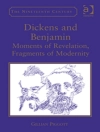Love is a key ingredient in the stereotypical fairy-tale ending in which everyone lives happily ever after. This romantic formula continues to influence contemporary ideas about love and marriage, but it ignores the history of love as an emotion that shapes and is shaped by hierarchies of power including gender, class, education, and social status. This interdisciplinary study questions the idealization of love as the ultimate happy ending by showing how the conteuses, the women writers who dominated the first French fairy-tale vogue in the 1690s, used the fairy-tale genre to critique the power dynamics of courtship and marriage. Their tales do not sit comfortably in the fairy-tale canon as they explore the good, the bad, and the ugly effects of love and marriage on the lives of their heroines. Bronwyn Reddan argues that the conteuses’ scripts for love emphasize the importance of gender in determining the “right” way to love in seventeenth-century France. Their version of fairy-tale love is historical and contingent rather than universal and timeless. This conversation about love compels revision of the happily-ever-after narrative and offers incisive commentary on the gendered scripts for the performance of love in courtship and marriage in seventeenth-century France.
Bronwyn Reddan
Love, Power, and Gender in Seventeenth-Century French Fairy Tales [PDF ebook]
Love, Power, and Gender in Seventeenth-Century French Fairy Tales [PDF ebook]
Achetez cet ebook et obtenez-en 1 de plus GRATUITEMENT !
Langue Anglais ● Format PDF ● ISBN 9781496223951 ● Maison d’édition Nebraska ● Publié 2020 ● Téléchargeable 3 fois ● Devise EUR ● ID 7645188 ● Protection contre la copie Adobe DRM
Nécessite un lecteur de livre électronique compatible DRM












